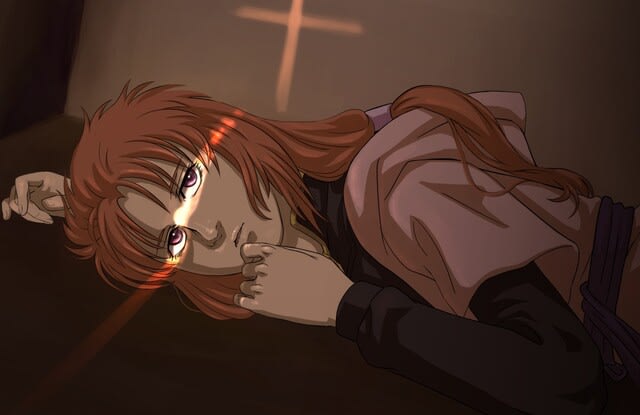
今日の「 お気に入り 」は 、ノンフィクション作家 ビル・ブライソンさん の
著書 " The Body ― A Guide for Occupants " からの 抜き書き 。
朝起きたときと夜眠りに就く前の一日2回 、毎日欠かさず 、口中を清潔に保つ
努力をし続けた方がいいようです 。当たり前のことを軽視しがちな自分です 。
一年の終わりに自戒の念を込めて 。
" It will not have escaped your attention that the mouth is a moist
and glistening vault. That's because twelve salivary glands are distributed
around it.
A typical adult secretes a little less than one and a half quarts a day.
According to one calculation, we secrete about 31,700 quarts in a
lifetime ( about as much as you would get in two hundred or so deep
baths ).
Saliva is almost entirely water. Only 0.5 percent of it is anything else,
but that tiny portion is full of useful enzymes ― proteins that speed
up chemical reactions.
Among these are amylase and ptyalin, which begin to break down
sugars in carbohydrates while they are still in our mouths.
Chew a starchy food like bread or potato for a bit longer than normal
and you will soon notice a sweetness. Unfortunately for us, bacteria
in our mouths like that sweetness, too; they devour the liberated sugars
and excrete acids, which drill through our teeth and give us cavities.
Other enzymes, notably lysozyme ― which was discovered by
Alexander Fleming before he stumbled onto penicillin ― attack many
invading pathogens, but not the ones that cause tooth decay, alas.
We are in the rather strange position that we not only fail to kill the
bacteria that give us a lot of trouble but actively nurture them.
Just recently it was discovered that saliva also contains a powerful
painkiller called opiorphin. It is six times more potent than morphine,
though we have it only in very small doses, which is why you are not
perennially high or indeed notably pain-free when you bite your cheek
or burn your tongue. Because it is so dilute, no one is sure why it is
there at all. It is so unassertive that its existence wasn't even noticed
until 2006.
We produce very little saliva while we sleep, which is why microbes
can proliferate then and give you a foul mouth to wake to. It is also
why brushing your teeth at bedtime is a good idea because it reduces
the number of bacteria you go to sleep with
If you've ever wondered why no one wants to kiss you first thing in the
morning, it is possibly because your exhalations may contain up to
150 different chemical compounds, not all of them as fresh and minty
as we might hope.""
( 出典 :Bill Bryson 著 " The Body ― A Guide for Occupants " .
Knopf Doubleday Publishing Group. 刊 )
上掲の英語の文章は 、翻訳本の中で 、次のように 日本語訳されています 。
「 口が 、湿ってぬらぬらと光るほら穴であることを見落とす人はいない 。
それは口じゅうに十二の唾液腺が散在しているからだ 。典型的な成人は 、
一日に約1.5リットル弱の唾液を分泌する 。
ある計算によると 、わたしたちは生涯に約3万リットルの唾液を分泌する
という ( 深いバスタブ2百杯分ほどに相当する ) 。
唾液は 、ほとんど完全に水だ 。ほかの成分はは0.5パーセントのみだが 、
そのわずかな部分に役立つ酵素 — 化学反応を促進するタンパク質 — がたく
さん含まれている 。特に 、アミラーゼとプチアリンは 、炭水化物の糖質が
まだ口の中にあるあいだに分解し始める 。パンやジャガイモのようなでん
ぷん質の食物を普段より少し長く嚙んでいると 、すぐに甘みに気づくだろ
う 。わたしたちにとって不運なのは 、口中の細菌も甘いものを好むことだ 。
細菌は分解された糖質を貪(むさぼ)って 代わりに酸を排出し 、歯に穴をあ
けて虫歯にする 。その他の酵素 、とりわけリゾチーム ― アレクサンダー・
フレミングがペニシリンと遭遇する前に発見した酵素 ― は 、たくさんの
侵入病原体を攻撃するが 、残念ながら 、虫歯の原因になる細菌とは戦って
くれない 。わたしたちは 、たくさんの厄介事を引き起こす細菌を殺せない
だけでなく 、積極的に育てているという 、やや奇妙な立場にある 。
つい最近 、唾液にはオピオルフィンと呼ばれる強力な鎮痛成分も含まれ
ていることが発見された 。モルヒネの六倍の効果があるが 、ごく少量し
か入っていないので 、年がら年じゅうハイになることもなければ 、舌を
火傷したり頬を噛んだりしたときに無痛でいられるほどでもない 。とて
も希薄なので 、そもそもなぜそこにあるのか誰にもわからない 。控えめ
すぎて 、2006年になるまでその存在すら知られていなかったのだ 。
睡眠中は 、ほとんど唾液はつくられない 。だから 、そのあいだに細菌
が増殖して 、起きると口の中がねばついたりする 。寝る前に歯磨きをす
るのが有効なのも 、それが理由だ 。いっしょに眠る細菌の数を減らせる 。
なぜ誰も朝一番に自分にキスをしたがらないのだろうといぶかったこと
があるなら 、それはおそらく 、あなたの呼気に百五十種類もの化合物が
含まれているせいだろう 。誰もが望むような 、さわやかなミントの香り
がする物質ばかりではない 。」
( 出典 : ビル・ブライソン著 桐谷知未訳 「 人体大全 ― なぜ生まれ 、
死ぬその日まで無意識に動き続けられるのか ― 」新潮社 刊 )






























